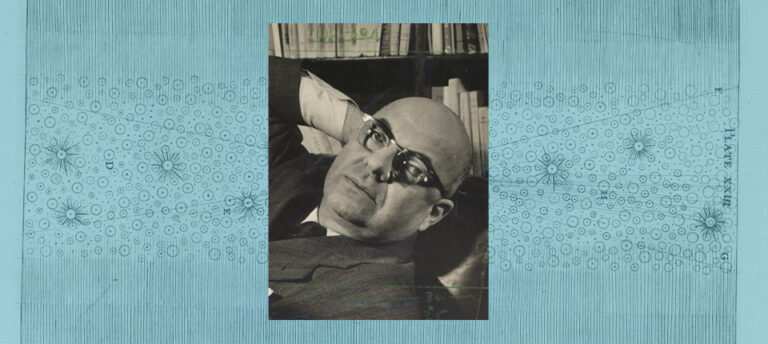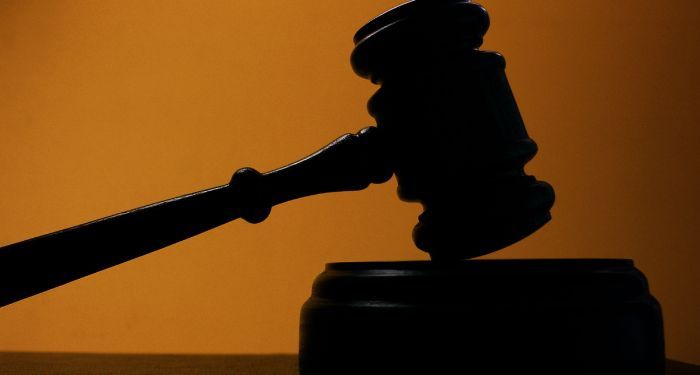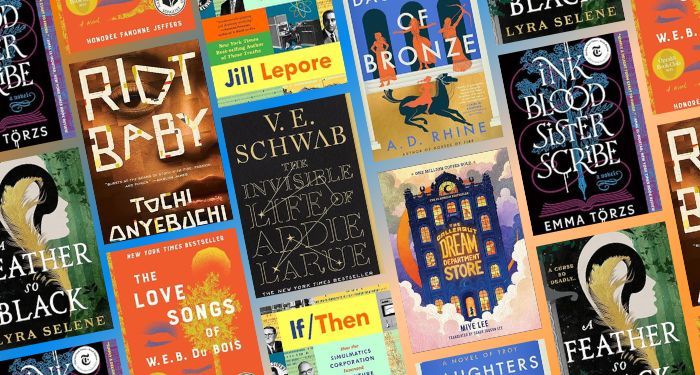 TODAY: In 1898, Brazilian poet, novelist, and short story writer Rui Ribeiro Couto is born.
Karen Russell on “what truths come to light, what injustices and possibilities are laid bare” in the wake of a natural disaster. | Lit Hub In Conversation
“Brevity is the soul of politeness. In an industry that traffics in words, it can feel like rudeness.” Sloane Crosley on the art of saying “no.” | Lit Hub Humor
How to incorporate time travel into a writing process (or rewriting a novel after a decade of distance). | Lit Hub Craft
Helen Nde recommends books for understanding African folklore by Isidore Okpewho, Ruth Finnegan, Ibrahim Al-Koni, and more. | Lit Hub Reading Lists
“To be a hypochondriac is to assign the most important place in one’s life to something that no one else believes is real.” Will Rees on Franz Kafka’s health anxiety and a writer’s calling. | Lit Hub Biography
“The pretty stuff you’re made of / Will crack and crease and dry.” Read two (very mean!) poems by Dorothy Parker. | Lit Hub Poetry
Christopher Summerfield on the practical and ethical ramifications of AI weapons. | Lit Hub Technology
“The next curve is a tricky one. Too much pressure on the gas and the van could tip.” Read from Jared Lemus’ story collection, Guatemalan Rhapsody. | Lit Hub Fiction
Delia Cai talks to Japanese Breakfast frontwoman and Crying in H Mart author Michelle Zauner about success, pressure, and trying not to read YouTube comments. | Vulture
“Like many people, I imagined that smugglers were rich, were bad, that everybody hates them: all these really simplistic kinds of things.” Jason De León on telling the stories of human smugglers. | Public Books
Robert Pollins examines Noam Chomsky’s contributions to climate justice. | Jacobin
“Universities must recognize how anti-Palestinian racism threatens all of us.” Dima Khalidi considers the far-reaching implications of Mahmoun Khalil’s abduction. | The Nation
Isabella Hammad on reading Etel Adnan amid a genocide. | The Yale Review
Kelly Marie Coyne revisits Toni Morrison’s Sula and considers autonomy, female friendship, and “outlaw women.” | Los Angeles Review of Books
TODAY: In 1898, Brazilian poet, novelist, and short story writer Rui Ribeiro Couto is born.
Karen Russell on “what truths come to light, what injustices and possibilities are laid bare” in the wake of a natural disaster. | Lit Hub In Conversation
“Brevity is the soul of politeness. In an industry that traffics in words, it can feel like rudeness.” Sloane Crosley on the art of saying “no.” | Lit Hub Humor
How to incorporate time travel into a writing process (or rewriting a novel after a decade of distance). | Lit Hub Craft
Helen Nde recommends books for understanding African folklore by Isidore Okpewho, Ruth Finnegan, Ibrahim Al-Koni, and more. | Lit Hub Reading Lists
“To be a hypochondriac is to assign the most important place in one’s life to something that no one else believes is real.” Will Rees on Franz Kafka’s health anxiety and a writer’s calling. | Lit Hub Biography
“The pretty stuff you’re made of / Will crack and crease and dry.” Read two (very mean!) poems by Dorothy Parker. | Lit Hub Poetry
Christopher Summerfield on the practical and ethical ramifications of AI weapons. | Lit Hub Technology
“The next curve is a tricky one. Too much pressure on the gas and the van could tip.” Read from Jared Lemus’ story collection, Guatemalan Rhapsody. | Lit Hub Fiction
Delia Cai talks to Japanese Breakfast frontwoman and Crying in H Mart author Michelle Zauner about success, pressure, and trying not to read YouTube comments. | Vulture
“Like many people, I imagined that smugglers were rich, were bad, that everybody hates them: all these really simplistic kinds of things.” Jason De León on telling the stories of human smugglers. | Public Books
Robert Pollins examines Noam Chomsky’s contributions to climate justice. | Jacobin
“Universities must recognize how anti-Palestinian racism threatens all of us.” Dima Khalidi considers the far-reaching implications of Mahmoun Khalil’s abduction. | The Nation
Isabella Hammad on reading Etel Adnan amid a genocide. | The Yale Review
Kelly Marie Coyne revisits Toni Morrison’s Sula and considers autonomy, female friendship, and “outlaw women.” | Los Angeles Review of Books
Lit Hub Daily: March 12, 2025
 TODAY: In 1898, Brazilian poet, novelist, and short story writer Rui Ribeiro Couto is born.
Karen Russell on “what truths come to light, what injustices and possibilities are laid bare” in the wake of a natural disaster. | Lit Hub In Conversation
“Brevity is the soul of politeness. In an industry that traffics in words, it can feel like rudeness.” Sloane Crosley on the art of saying “no.” | Lit Hub Humor
How to incorporate time travel into a writing process (or rewriting a novel after a decade of distance). | Lit Hub Craft
Helen Nde recommends books for understanding African folklore by Isidore Okpewho, Ruth Finnegan, Ibrahim Al-Koni, and more. | Lit Hub Reading Lists
“To be a hypochondriac is to assign the most important place in one’s life to something that no one else believes is real.” Will Rees on Franz Kafka’s health anxiety and a writer’s calling. | Lit Hub Biography
“The pretty stuff you’re made of / Will crack and crease and dry.” Read two (very mean!) poems by Dorothy Parker. | Lit Hub Poetry
Christopher Summerfield on the practical and ethical ramifications of AI weapons. | Lit Hub Technology
“The next curve is a tricky one. Too much pressure on the gas and the van could tip.” Read from Jared Lemus’ story collection, Guatemalan Rhapsody. | Lit Hub Fiction
Delia Cai talks to Japanese Breakfast frontwoman and Crying in H Mart author Michelle Zauner about success, pressure, and trying not to read YouTube comments. | Vulture
“Like many people, I imagined that smugglers were rich, were bad, that everybody hates them: all these really simplistic kinds of things.” Jason De León on telling the stories of human smugglers. | Public Books
Robert Pollins examines Noam Chomsky’s contributions to climate justice. | Jacobin
“Universities must recognize how anti-Palestinian racism threatens all of us.” Dima Khalidi considers the far-reaching implications of Mahmoun Khalil’s abduction. | The Nation
Isabella Hammad on reading Etel Adnan amid a genocide. | The Yale Review
Kelly Marie Coyne revisits Toni Morrison’s Sula and considers autonomy, female friendship, and “outlaw women.” | Los Angeles Review of Books
TODAY: In 1898, Brazilian poet, novelist, and short story writer Rui Ribeiro Couto is born.
Karen Russell on “what truths come to light, what injustices and possibilities are laid bare” in the wake of a natural disaster. | Lit Hub In Conversation
“Brevity is the soul of politeness. In an industry that traffics in words, it can feel like rudeness.” Sloane Crosley on the art of saying “no.” | Lit Hub Humor
How to incorporate time travel into a writing process (or rewriting a novel after a decade of distance). | Lit Hub Craft
Helen Nde recommends books for understanding African folklore by Isidore Okpewho, Ruth Finnegan, Ibrahim Al-Koni, and more. | Lit Hub Reading Lists
“To be a hypochondriac is to assign the most important place in one’s life to something that no one else believes is real.” Will Rees on Franz Kafka’s health anxiety and a writer’s calling. | Lit Hub Biography
“The pretty stuff you’re made of / Will crack and crease and dry.” Read two (very mean!) poems by Dorothy Parker. | Lit Hub Poetry
Christopher Summerfield on the practical and ethical ramifications of AI weapons. | Lit Hub Technology
“The next curve is a tricky one. Too much pressure on the gas and the van could tip.” Read from Jared Lemus’ story collection, Guatemalan Rhapsody. | Lit Hub Fiction
Delia Cai talks to Japanese Breakfast frontwoman and Crying in H Mart author Michelle Zauner about success, pressure, and trying not to read YouTube comments. | Vulture
“Like many people, I imagined that smugglers were rich, were bad, that everybody hates them: all these really simplistic kinds of things.” Jason De León on telling the stories of human smugglers. | Public Books
Robert Pollins examines Noam Chomsky’s contributions to climate justice. | Jacobin
“Universities must recognize how anti-Palestinian racism threatens all of us.” Dima Khalidi considers the far-reaching implications of Mahmoun Khalil’s abduction. | The Nation
Isabella Hammad on reading Etel Adnan amid a genocide. | The Yale Review
Kelly Marie Coyne revisits Toni Morrison’s Sula and considers autonomy, female friendship, and “outlaw women.” | Los Angeles Review of Books













 Bengali (Bangladesh) ·
Bengali (Bangladesh) ·  English (United States) ·
English (United States) ·